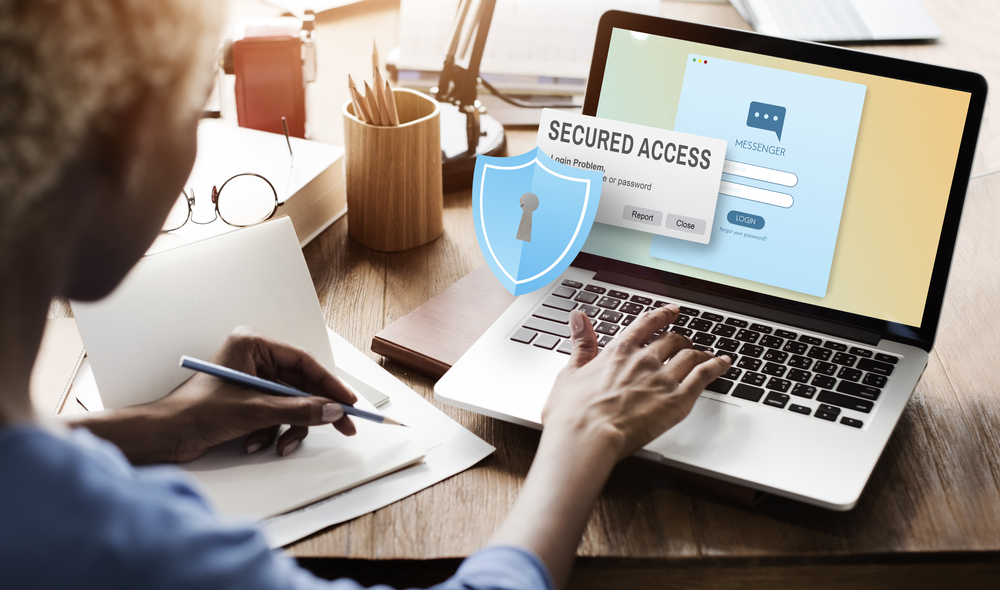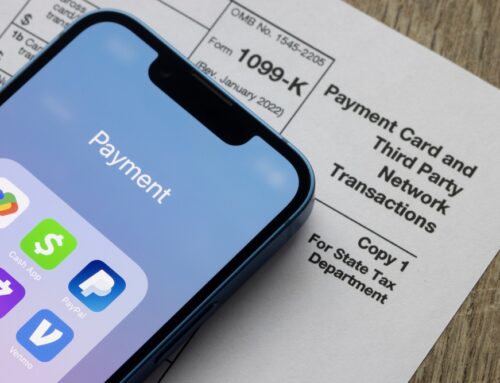Keeping your data and private information secure is important in every facet of life and business — and protecting your tax information is one of the most critical ways to help prevent data and identity theft.
We want to make sure you are always well-equipped with best practices for safeguarding your data, taking proper security measures, and avoiding becoming victim to fraudulent IRS scams. The following guidelines will help you stay up to date on recommended security features that are provided by the IRS to keep you and your data safe.
Multi-factor authentication and Identity Protection (IP) PIN
First and foremost, you should know and trust that your tax professional keeps your sensitive data secure. One of the best ways they can (and always should) do so is by using multi-factor authentication, which requires a second step to authenticating someone’s identity such as a security code, pin number, or fingerprint in addition to the username and password. Thieves may steal usernames and passwords but cannot access accounts without the additional authentication.
Multi-factor authentication should be used on all online tax software used by both tax professionals and taxpayers.
Additionally, anyone who can verify their identity has the option to get an IP PIN, which is a six-digit number that is known only to the taxpayer and the IRS that helps prevent a Social Security Number or Individual Taxpayer Identification Number from being fraudulently used to file federal tax returns.
Tax professionals cannot get an IP PIN on behalf of their clients, but we urge you to do so for yourself. Even if a thief has already filed a fraudulent return with your information, you should still get an IP PIN as soon as possible. It will offer protections for future tax years and prevent you from being a repeat victim.
The IP PIN is valid for one calendar year and enrolled taxpayers are given a new IP PIN every year for added security. You can currently get one for 2021 and new IP PINs will be available in January 2022.
Avoiding IRS scams
This may seem like a no-brainer, but common IRS scams are always adapting, and scammers are continually looking for ways to be trickier. A couple of tips for avoiding this trap is understanding the evolving nature of these types of scams and understanding how the IRS communicates with taxpayers.
The IRS and state tax agencies have warned recently that evolving scams are using the pandemic as a gateway into stealing data. According to IRS Commissioner Chuck Rettig, “Identity thieves have been relentless in exploiting the pandemic and the resulting economic pain to trick taxpayers and tax professionals to disclose sensitive information.”
Scammers use emails or texts to trick a person into providing personal information such as passwords, back account or credit card numbers, and Social Security numbers. The IRS has seen a number of successful scammers this year that have taken time to identify their victim in order to come across more alluring, so it is important to be extremely wary of any links or attachments coming from an unknown source.
The IRS will NEVER call, email, or text asking you to provide sensitive information without warning. If they ever do, they will have sent a notice or letter beforehand. When the IRS needs to contact you, the initial outreach is typically delivered by mail through the U.S. Postal Service.
To brush up on the facts concerning exactly how the IRS will communicate with you, we encourage you to read this article from IRS.gov.
Feel confident about data security with your trusted Northern Colorado CPA
At Wych Tax, data security and protecting client information is always a number one priority. Alongside our own safety measures, you can protect yourself even further by following the suggestions above. If you ever have any concerns regarding your data security, potential phishing scams, or questions on how to further protect your information, please don’t hesitate to reach out to us. After all, our mission is to provide you the upmost financial peace of mind — in every aspect.
To set up an appointment, visit our website or call us at 970-223-0792.






